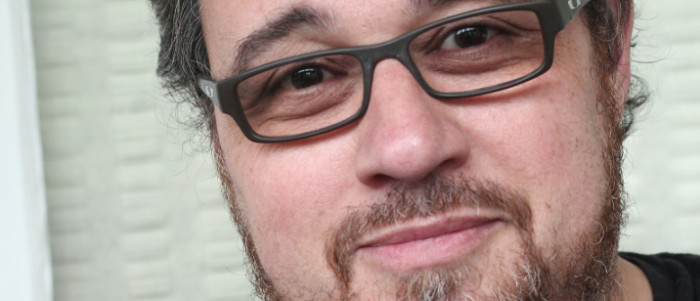
- 23October
-
The URTA Q&A with Alexander Gelman
Alexander Gelman is the Director of the School of Theatre and Dance at Northern Illinois University and the Producing Artistic Director of the Organic Theater Company in Chicago. He discusses with URTA a student’s decision to pursue graduate training, the program at Northern Illinois, and his own experience in grad school.
Can you tell us a bit about Northern Illinois University’s SummerNITE professional intern company, and how it integrates with the Organic Theater Company in Chicago?
SummerNITE is The School of Theatre and Dance Intern Company. In the past it produced independently, under a variety of Equity contracts. Currently it works in collaboration with Chicago’s Organic Theater Company. NITE interns perform a variety of functions at OTC including understudying. Usually, the first production of the School season is a remount of an OTC production with interns playing the roles that they had previously understudied.
One of the questions we hear most often from prospective applicants to URTA’s National Unified Auditions and Interviews is “I’m not sure if I’m ready for grad school.” What would you say are some of the “prerequisites” for entering a MFA program?
There are several.
1. A clear (and ideally clear-headed) decision that your chosen field in the theatre is indeed what you want to do with your life.
2. A strong undergraduate education (not necessarily in theatre) because nothing limits artists as much as ignorance.
3. A willingness to be a student again.
4. An ability to trust the unique training that each of our programs offer.There are more, but these are the ones that come immediately to mind.
Northern Illinois University will be recruiting MFA designers this year in scene, lighting, and costume design as well as theatre technology. What are the main qualities your NIU recruiters will be looking for when reviewing portfolios and interviewing candidates?
The design recruiters’ search is, in many ways the same as that of the acting recruiters’: Gifted young artists who need, and are genuinely interested in training. I suspect all the programs also look for kindred spirits who are likely to connect with the aesthetic and professional values of their primary teachers.
How would you describe your own time in graduate school? And how has your training benefited you in your own career?
I was very young—21—when I entered graduate school. The time there was intoxicating, exhausting, terrifying, and deeply enriching. I believe that there were elements of the training that some of my older classmates were able to absorb easier than me. I am also convinced that the reverse was true. I graduated with a set of skills and a confidence in those skills. I also had a lot more to learn. I frequently remember my teachers’ wisdom, occasionally down to specific instances and quotes. While I proudly carry the flag of my alma mater, I believe that at its best, my classmates’ and my work is different from each other, except for the professionalism we bring to each project.
What do you feel an actor should look for in a prospective MFA program?
There are three elements to successful training
1. A gifted student.
2. Insightful and brilliant Master Teacher (Faculty as a whole).
3. The mutual belief in each other. If an applicant receives an offer from a place that does not inspire in them the belief in their unique training, they will be better off not going to school at all that year and continuing their search.What are some of the guiding principles of actor training at NIU?
Commitment to authenticity, truthfulness, and fascination with the partner. Living truthfully under imaginary circumstances. Creation of a unique personal process that will enable each actor to work under any conditions, in any style, in all genres.

Northern Illinois University production of THE MISANTHROPE
What do you find to be the most rewarding aspect of working with student actors?
Witnessing and participating in a young artist’s discovery of their own power.
What advice would you give to someone who has just completed a MFA and is about to embark on their theatre career?
Ideally, you have attained a personal process that is meant to serve you over a lifetime of work. Rely on it and protect it. Protecting it does not mean arguing for it with colleagues who come from different traditions. It does mean translating all the input that comes at you into your process so that you NEVER skip steps and ALWAYS rely on the work that you are trained to do. That’s what makes you a professional.
Thanks, Alex!
Alexander Gelman is a Russian-born and American-trained director, who received his training at Boston University. He is the Director of the School of Theatre and Dance at Northern Illinois University and the Producing Artistic Director of the Organic Theater Company in Chicago. Mr. Gelman has worked as a director and translator of plays from Russian to English. His many productions include Eugene Onegin, L’Incoronazione di Poppea, Turn of the Screw, L’Italiana in Algeri, Camelot, Twelfth Night, Side by Side by Sondheim, As You Like It, Romeo and Juliet, Die Fledermaus, The Threepenny Opera, The Taming of the Shrew, Stage Struck, Barber of Seville, La Traviata, Carmen, School for Wives, Waiting for Godot, A Midsummer Night’s Dream, Journey of the Fifth Horse, Tartuffe, Tango, The Lion in Winter, and The Burning Fiery Furnace.
He has worked at such theatres as American Repertory Theatre, Arena Stage Company, Canterbury Opera (Christchurch, New Zealand), Chicago Lyric Opera, Utah Opera, Ashlawn-Highland Music Festival, Chattanooga Opera Association, Hartford Stage Company, The Acting Company, New York Shakespeare Festival, Minneapolis Children’s Theatre Company, Emmy Gifford Theatre, and The Juilliard School of Drama.
Posted by URTA Posted on 23 Oct


Post Comments 0